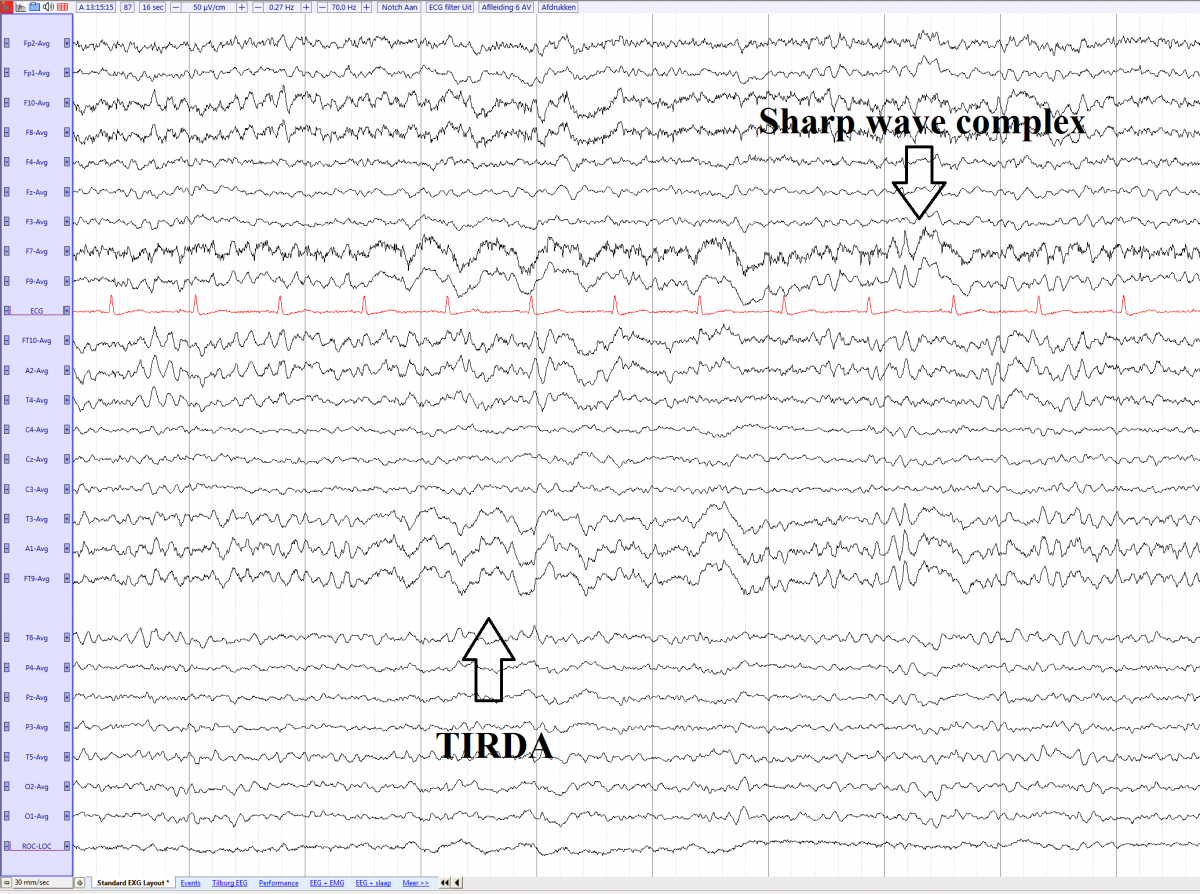TIRDA (temporal intermittent rhythmic delta activity)
From EEGpedia
- Temporal
- Intermittent: In cycles, so not continuous
- Rhythmic: Repetition of a waveform with relatively uniform morphology and duration, without an interval between consecutive waveforms.
- Delta: Delta waves
- Activity
- Short burst of rhythmic delta activity in the temporal region
- Amplitude of 50-100 microV
- The TIRDA can be more specified with the prevalence, duration, frequency, amplitude, stimulus-induced (SI), Evolving OR Fluctuating (both terms refer to changes in either frequency, location or morphology).
- If a more ictal appearance it can be categorized as TIRDA+:[1]
- +F: superimposed fast activity.
- +S: superimposed sharp waves or spikes, or sharply contoured.
- +FS: superimposed fast activity and sharp waves or spikes, or sharply contoured.
Clinical relevance
- Strong association with temporal lobe epilepsy
- Occurs in 28% of patients with temporal lobe epilepsy [2]
Other intermittent rhythmic delta activity:
- FIRDA (frontal intermittent rhythmic delta activity)
- OIRDA (occipital intermittent rhythmic delta activity)
TIRDA in a 72 year old female with left temporal epilepsy (average)
Notes
